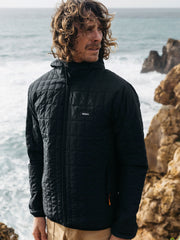It was obvious that the game changer was Apish. He knew the community, knew the culture and was respected in his community. The kids flooded to Apish as he became Masi’s first surf mentor. My role, and indeed the role of Waves for Change today, was to train Apish with the soft skills he needed to work with children experiencing mental health challenges.
Each week I’d ask the surfers ‘why do you come’. Most of the replies were as I expected. ‘It’s fun’, ‘It’s new’, ‘It’s exciting’. But the answer I wasn’t expecting, and the one answer I got from every single surfer, was this ‘We get to talk to people who listen to us’. The more I came to understand South Africa, the more it became apparent that young people here live exceptionally stressful lives. And there are no outlets. The statistics are mind-boggling. Estimates in Cape Town are that 1/3 of young people are living with a mental health challenge. Primary health services for mental health conditions such as anxiety or depression are almost non-existent and certainly out of reach of the most vulnerable in a land of private health care and under-resourced government clinics and hospitals. There is one social worker to every twenty thousand young people.
And yet here at the beach we were establishing a simple dynamic. A safe space where we could have fun, get to know one and other and share our problems. Safe spaces being created by people like Apish - influential figures in their communities who could navigate the cultural and social challenges to which I was ignorant. And under the leadership of these surf mentors, we were in a small way overcoming the legacy of beach apartheid. Overcoming some of the challenges of overstretched primary health care services. We were connecting communities with the ocean. We were giving people access to spaces to share, to be heard. We knew it was therapeutic in a way, but didn’t dare name it. We weren’t clinicians. But we pressed on regardless.


















































































